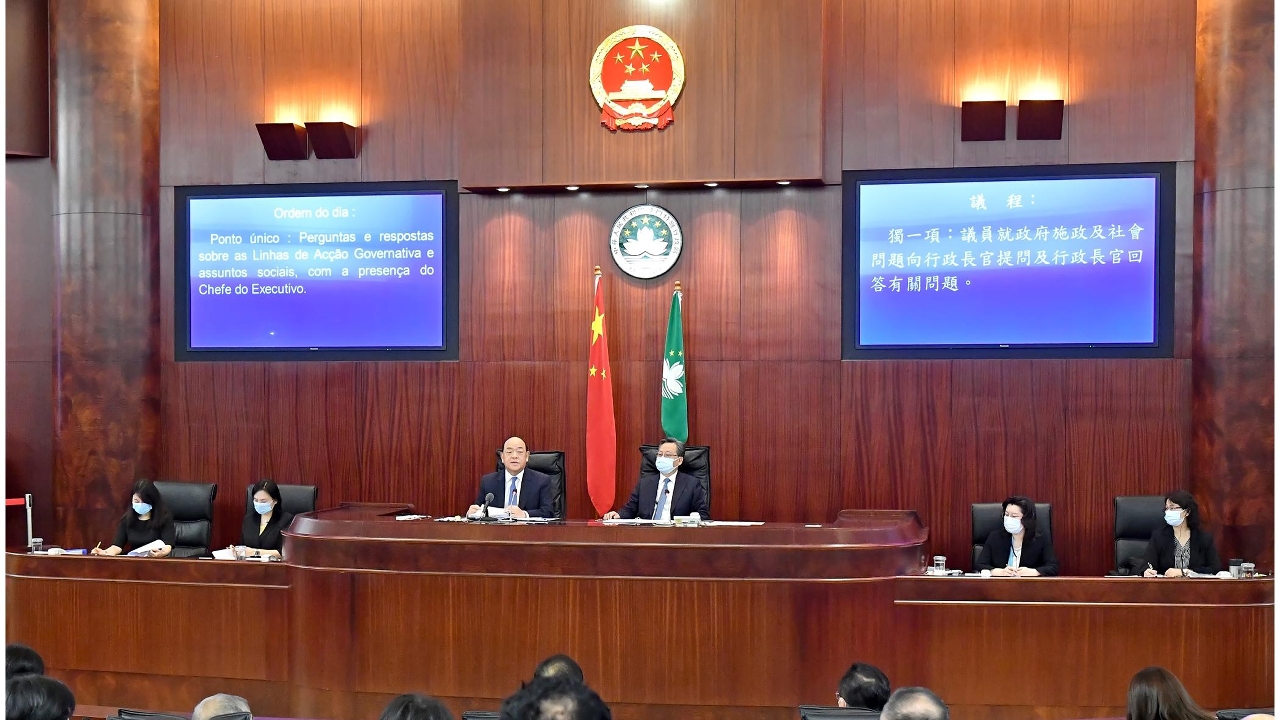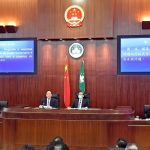
The issue of housing is at front and centre of the Government's policy agenda, and is a very important work priority for the administration, the Chief Executive told lawmakers on Tuesday afternoon (13 April) during a plenary question-and-answer session of the Legislative Assembly.
Responding to questions regarding the Government's housing plan, Mr Ho Iat Seng said construction had begun on an elderly housing project that was announced in April last year. The project was expected to be basically completed by 2023. He added that upon completion of construction, the pilot project would be handed over to the Social Welfare Bureau for it to allocate the units for use. All units of the project would be for rental only, rather than for sale, and would be allocated in accordance with a by-law, Mr Ho explained.
According to the Chief Executive, the Government was planning to unveil in June or July the show units of the two-bedroom and one-bedroom versions of the flats in the elderly housing project. The Government currently had no information regarding how many applicants might apply for units in the project. It was intended for financially-independent senior citizens currently living in buildings that were not equipped with passenger lifts. Senior citizens already living in homes for the elderly, or in other housing equipped with lifts, were not eligible to apply to live in the new project. The Social Welfare Bureau was assessing how much rent should be levied.
Regarding housing for the so-called ‘sandwich class’, the Chief Executive pointed out that the results of a public consultation on the issue, which was launched last year, would be published by the end of April, and a legislative process would follow. If the public agreed to creation of such housing, the Government would begin preparing land to build such accommodation, Mr Ho noted. He added that the Government would strive to announce Macao’s Urban Master Plan by the end of this year, so that detailed zoning plans could be made accordingly, and relevant studies on land zoned for residential purposes could be conducted.
Mr Ho said the Government's housing policy also covered private housing in addition to housing for the elderly, sandwich-class housing and public housing (including social housing and Home-Ownership Scheme housing). After zoning plans were made in accordance with the Urban Master Plan, the Government intended to allocate some land for public auction, in order for developers to build commercial or residential buildings. Such a step would not affect the land zoned for public housing, he said.
The Government would strike the right balance between the development of public housing, housing for the elderly, and sandwich-class housing, as well as private housing. It would set out Macao's overall housing policy in accordance with market demands, he added.
The Chief Executive also revealed that construction contracts for several Home-Ownership Scheme housing complexes, to be developed in five plots of land in New Urban Area Zone A, would be put up for public bidding very soon. An application process regarding allocation of more than 5,000 units of Home-Ownership Scheme housing in Zone A would open in the second half this year. This would be the first application round for subsidised housing since the amendment to the Law on Home-Ownership Scheme Housing. The Government would closely monitor the public's response to the application round. It was planning to open next year an application process for allocation of another 5,000 units of Home-Ownership Scheme housing.
As for public housing, Mr Ho said that as the revised proposal of the public housing project on Wai Long Avenue would offer 2,000 fewer units than the original proposal, the Government would strive to find land in other places to build those 2,000 units. He explained that the Government had no intention of decreasing the supply of public housing, but wanted rather to offer bigger units to citizens. He added that the demand for subsidised housing in Macao was yet to be determined, and the development of the private-housing sector, which makes up 70 percent of the local housing market, had to be taken into account, in order to avoid the risk of negative equity for property owners.
Show units in the subsidised housing projects on lots T1, T2, and T3, in New Urban Area Zone A, would be unveiled in June or July, so that the public could see the quality of public housing provided under the new law, Mr Ho said. The Government had learned lessons – from past problems – regarding the quality of subsidised housing, and would ensure the safety and quality of the construction materials used in subsidised housing in Zone A. Proper guidelines had been established in the tender document for the projects, and the Government would follow up via an evaluation process.


